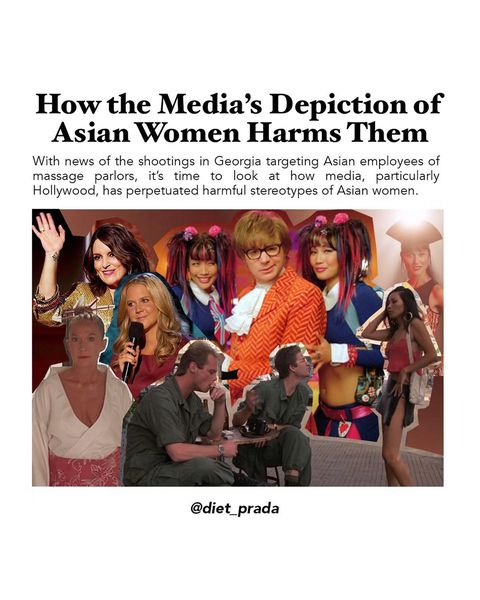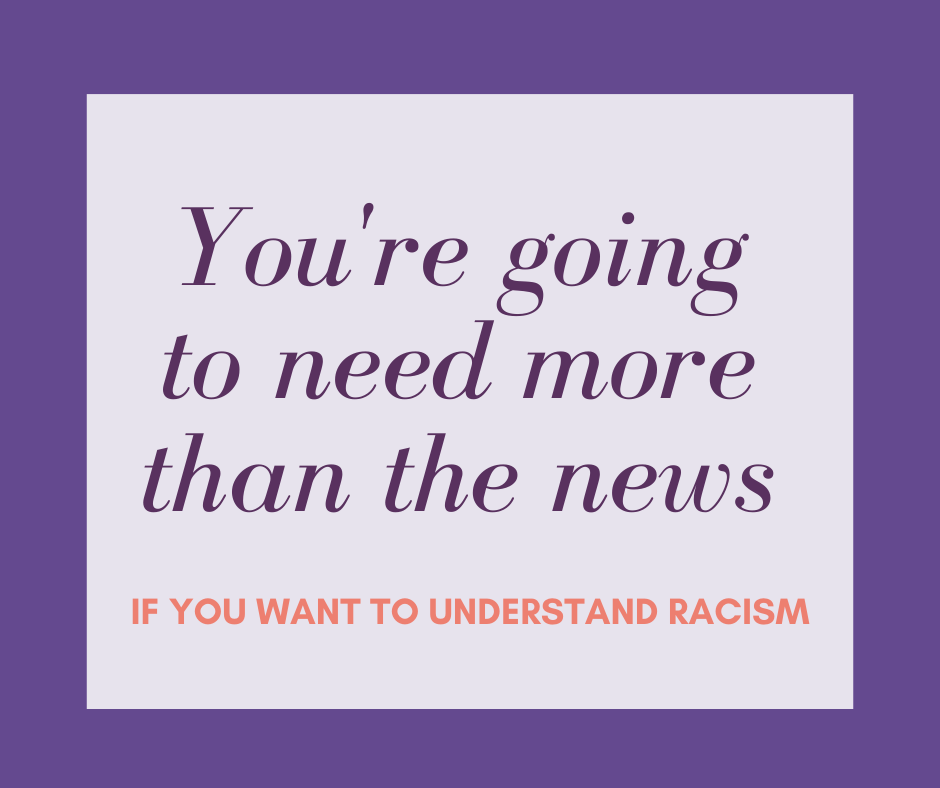Welcome to At The End Of the Day. I’m Hannah Sung and I write this newsletter to put a people-first perspective on the news.
This week, Asian American women were targeted in a hate-motivated mass murder in Atlanta that left eight people dead. (And unlike news reports, which quote the FBI and police in a broken system, I’m calling it a hate crime although official authorities haven’t labeled it as such at this point).1
When the news broke on March 16, initial stories focused on crime details. Where it happened. What time it occurred. The name of the suspect. Crime reporters need to cover those bases.
But even the most detailed and lengthy rundown of crime details won’t give a true sense of why or how this happened.
For the victims and their families affected by this mass murder, yes, their hell is the result of one accused killer right now. But for those of us who know these victims only by name—Delaina Ashley Yaun, 33, Xiaojie Tan, 49; Daoyou Feng, 44, Soon Chung Park, 74, Hyun Jung Grant, 51, Suncha Kim, 69, Yong Ae Yue, 63, and Paul Andre Michels, 54 —this story is about more than one violent perpetrator.
Wuhan deserved our support — instead we got this
During the pandemic, Asian Americans and Canadians have experienced a surge in violence and hate crimes. Asian individuals have been viciously attacked, and killed, in random, daytime attacks caught on video. Many victims are elderly. In Vancouver, reports of anti-Asian hate crimes went up 717% in the past year.2
This hatred didn’t start with the pandemic or racist terms like “Wuhan flu” or “China flu” or “kung flu.” It didn’t start with Trump. It didn’t start with Canadian musician Bryan Adams, who went a racist rant about “bat-eating, virus making greedy bastards” (and yet I *still* heard his song played on the CBC the other day, preceded by a rapturous intro -- excuse me while I throw up).
Our country was built this way
In Canada, our history includes what we commonly call the head tax, based in the Chinese Immigration Act (1885) and the ensuing Chinese Exclusion Act (1923).
Canada needed labour, including to literally help build this nation by creating railroad infrastructure, but also wanted to keep it a “white man’s country.” 3
From the government’s point of view, the Chinese Immigration Act was an overwhelming success. During the exclusionary period, fewer than 50 Chinese immigrants were allowed entry. Not only did the law ban Chinese immigration, it also intentionally disrupted family life and stunted community growth.
Source: The Canadian Encyclopedia, Chinese Immigration Act4
Filling a labour gap, but not wanting Chinese men to usurp white men for their more desirable jobs, is what led to Chinese men only being permitted to do “feminine” labour, such as in restaurants and laundromats.5
And yes, the interaction between Asian men and white women was heavily policed because well, white supremacist patriarchy.6 7
Knowing this, the emasculation of Asian men becomes more nefarious and less accidental.
Remember that racist stereotypes are never accidental.
I learned something new this week in a Twitter thread by Kevin Nadal, an academic at City University of New York.
Most people know about the Chinese Exclusion Act of 1882. But did you know about the Page Act of 1875? It was the first federal law to restrict immigration in general, and it specifically targeted Asian women who were believed to be entering the US for prostitution or polygamy.
— Kevin Nadal, Twitter, March 17


Restricting Chinese women from entering the U.S. was meant to prevent Chinese babies being born, which would in turn prevent Chinese families from creating Chinese communities.
In other words, the exact same attitudes were driving immigration policy in both the U.S. and Canada.

Remember that racist stereotypes were created by design.
What does this have to do with the murders in Atlanta?
Let’s talk about Asian fetishes.
This is from an article on what artificial intelligence and internet search trends can tell us about misogyny:
The fetishization of Asians is so prominent that the word “Asian” became an automatically banned keyword, despite it being a qualifier for over half the world’s population.
— Apple Censors URLs Containing “Asian” with Adult Filters, The McGill Daily8
Some of us don’t need AI tell us what we know through lived experience.
I know I just went back in time almost 150 years and then flashed forward to our world of artificial intelligence, just to try and discuss what happened this week in Atlanta.
White supremacy is an architecture that was built over time and with many hands. Trying to to keep your writing to one incident is like describing a screw or a nail when what you really need to do is stand back to try and get it all in the picture.
What I learned this week
I don’t want to think about anything right now but the victims. Information has been slow to come out.
Racism can manifest in a multitude of ways. We’re only starting to begin to learn who these women are. But the fact that people jumped to conclusions, that they were migrants, that they were sex workers, this shows that people are using their own biases of who Asian women are in order to make conclusions about what happened.
— Lawyer and professor Jamie Liew on CBC Radio, Mar 19 8
The reporting has led to news media explorations of human trafficking. (And never forget, Indigenous women in North America are statistically the most vulnerable to trafficking -- believe your society when it tells you what and whom they value, and then reject that with an equal and opposite reaction.)9
The only way I can think of continuing to read the news is by thinking about solidarity.
On Wednesday, when people woke up to this horrifying news out of Atlanta, multiple people reached out to me privately to say, Hey, today is terrible. Take it easy.
I saw these messages of support for what they are, a direct link to how Black people specifically experienced the news of George Floyd last year.
This kind of checking-in is muscle memory from Black Lives Matter in 2020, during which Black people were traumatized by the George Floyd video and the deaths of Breonna Taylor, Elijah McClain and numerous others. People supported each other through being re-exposed to systems of oppression in media coverage of crime and policing.
When you read endless news coverage about people being murdered because of their gender or race or another aspect of their identity, and it’s one that you share, it’s visceral. You feel that in your body. Black people know this. Indigenous people know this. LGBTQ2S people know this. There are many groups of people who have this experience.
Solidarity is the only way anti-racism actions can work. We continually learn from Black movements.
Personally, I felt embarrassed by all the kind messages I received and that I have such a richness of support when my own life is fine.
But the messages made me realize that while systemic change takes so long, behavioural change is happening right before our eyes. It’s pretty incredible.

Media frames these types of racist attacks as isolated incidents resulting from one, unhinged person. They’re not.
And in the same way that the problem is never just one person, the solution won’t be, either.
For me, solidarity means standing up and being vocal, but it also means letting people do the anti-racism work they want and need to do in their own way.
Maybe I’ll explore more thoughts on solidarity and allyship in future letters. I’ve been reading all your emails of your own wake-up calls from last week and I’m using them as suggestions for what to write about in the future.
Thank you, I’m grateful for you.
Hannah
✨✨✨ At The End Of the Day is edited by the super-smart and supportive Ishani Nath ✨✨✨
FURTHER READING
Asian-Americans Are Being Attacked. Why Are Hate Crime Charges So Rare? New York Times
Here’s how South Korea is reacting to the Atlanta spa shootings, Vice
How to be a good ally to your Black friends, Friday Things
Chinese Immigration Act of 1923, Canadian Museum of Immigration at Pier 21
William Lyon McKenzie King, later to become Prime Minister of Canada, quoted in his 1908 report as Deputy Minister of Labour, written in response to the Vancouver race riots of 1907
Chinese Immigration Act, The Canadian Encyclopedia
The White Women's Labor Laws: Anti-Chinese Racism in Early Twentieth-Century Canada, Cambridge University Press
Velma Demerson, Wikipedia
Apple Censors URLs Containing “Asian” with Adult Filters, The McGill Daily
Trafficking of Indigenous Women and Girls in Canada Submission to the Standing Committee on Justice and Human Rights, Native Women’s Association of Canada
Last chance! This is your last opportunity for you to get 20% off your first order when you use the code ATEOD20 with The Real Food Kitchen.
I love the values of this company, who deliver frozen, healthy meals for children and families (and provide paid sick leave for their staff — yes!).
With every purchase, you are supporting the newsletter.
Read more on how we started to work together here.
Delivery boundaries are: Toronto, Brampton, Mississauga, Oakville, Vaughan, Markham, Pickering and delivery to a pick-up location in Hamilton.







